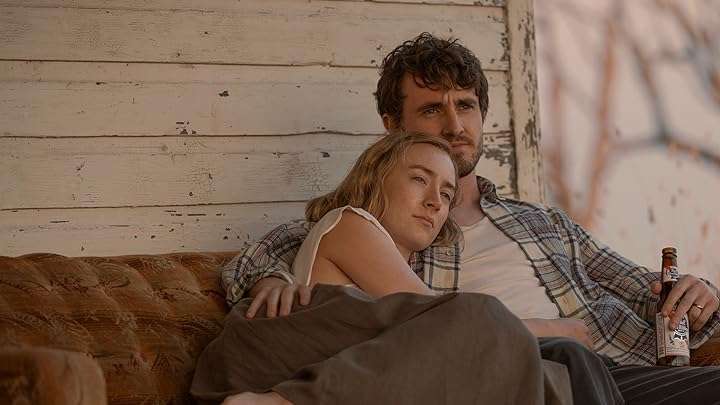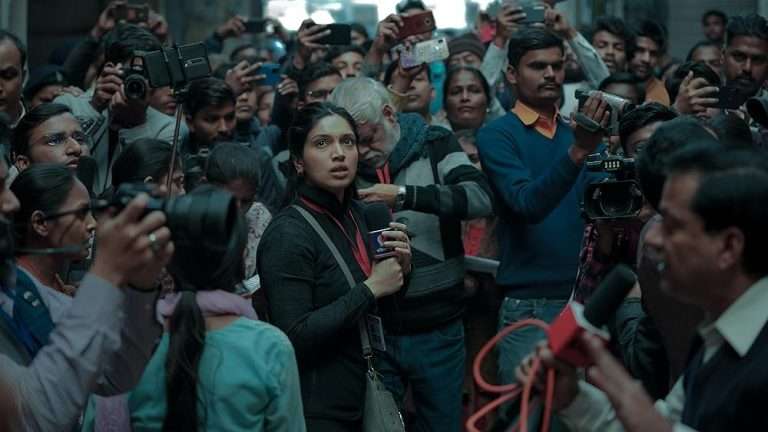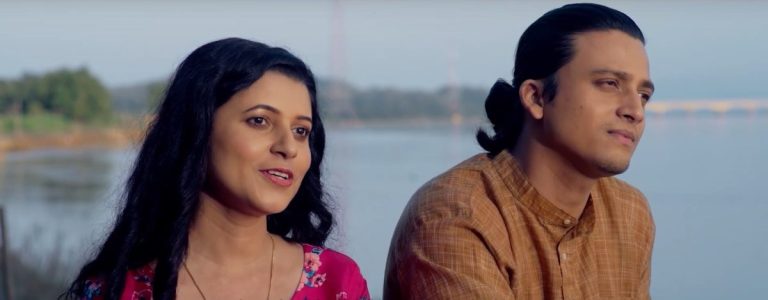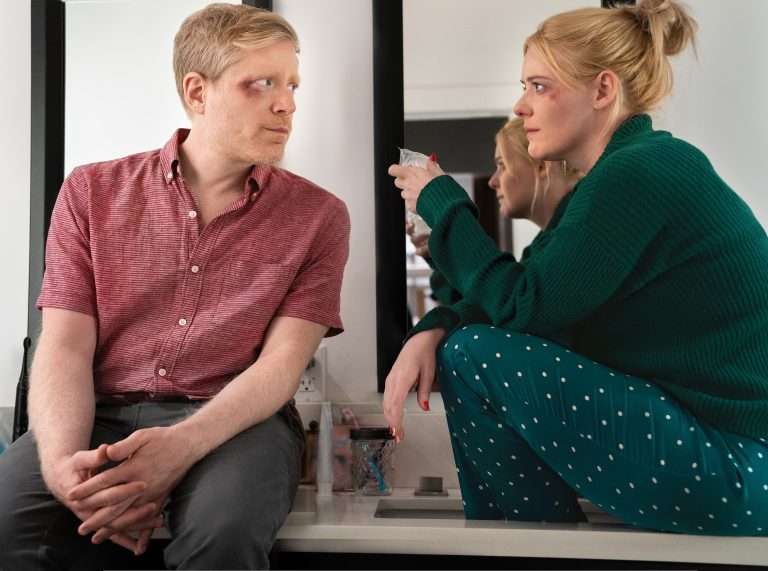Ke Huy Quan’s Oscar win for “Everything Everywhere All at Once,” as many awards narratives do, made for an unparalleled joyous celebration of a talent done dirty by an industry that had been a part of his life for decades. A minor fixture of the 1980s before he’d even hit puberty, the roles became scant into adulthood, sending Quan into a behind-the-scenes role as a stunt choreographer until Daniels picked him out for the role of a lifetime. But we already heard all of this ad nauseam the last time Quan was rightfully in the spotlight; now, just under two years after winning that Oscar, it’s time to see how all that rightful celebration has been channeled towards the exact opportunities that Quan had been unfairly lacking before his return to the frontlines.
Aside from a forgettable voice role in the already forgotten “Kung Fu Panda 4,” and a bit part in that “Loki” show I’m told is good by people who actually watch TV, Quan’s first major role capitalizing on his status as an Academy Award winner has come nearly three years after the role that won him the accolades in the first place: a minor action-comedy carved into the shape of a cheap Valentine’s Day card. But just like any last-minute expression of adoration, “Love Hurts” proves to be just convincing enough as long as there’s a heartily dedicated bullshit artist handing you the note.
The artist in question is Quan’s Marvin Gable (given the film’s love season setting, perhaps the name is an homage to Marvin Gaye?), an endlessly chipper realtor with a dark—and largely undiscussed—past as a violent enforcer for his mobster brother, Knuckles (Daniel Wu). Even in the days when he was making bone pudding with his fists, though, Marvin had a soft spot for the crew’s shady accountant, Rose (Ariana DeBose), and when the time came for him to “take care” of her, Marvin decided to set her free and begin a new life selling new lives.
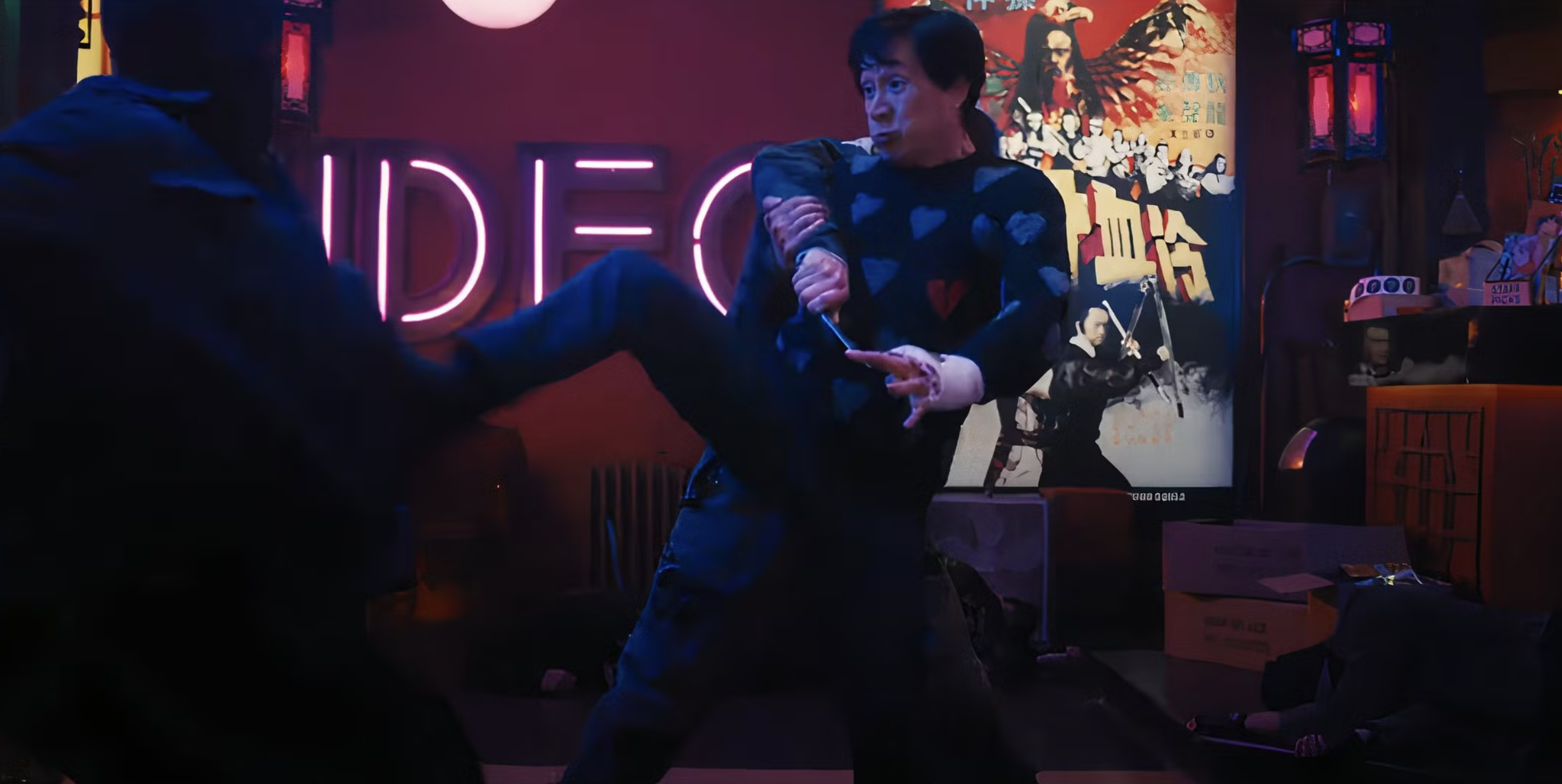
Marvin’s balanced existence—one predicated upon his utter devotion to finding the best homes for his clients and, as he puts it, reliving the experience of starting afresh every time he succeeds in that venture—is naturally disrupted when Rose, thought dead by all but her secret knight in shining armor begins sending threatening messages to all involved in the business, including him. Now, Knuckles’s endless rotation of goons, each with their own slightly diverging motivations, have been dispatched to handle the situation—and Marvin—in varying capacities.
Not alone in his capacity as an experienced stunt worker, Quan is here directed by first-time helmsman Jonathan Eusebio, whose past works in choreography include the “John Wick” films, several early Marvel features, and, most critically, “Idiocracy.” With an overstuffed script from Matthew Murray, Josh Stoddard, and Luke Passmore, Eusebio is able to mold “Love Hurts” into a doughy, cupid-shaped biscuit that tastes just fine although it could have benefitted from just a smidge longer in the oven.
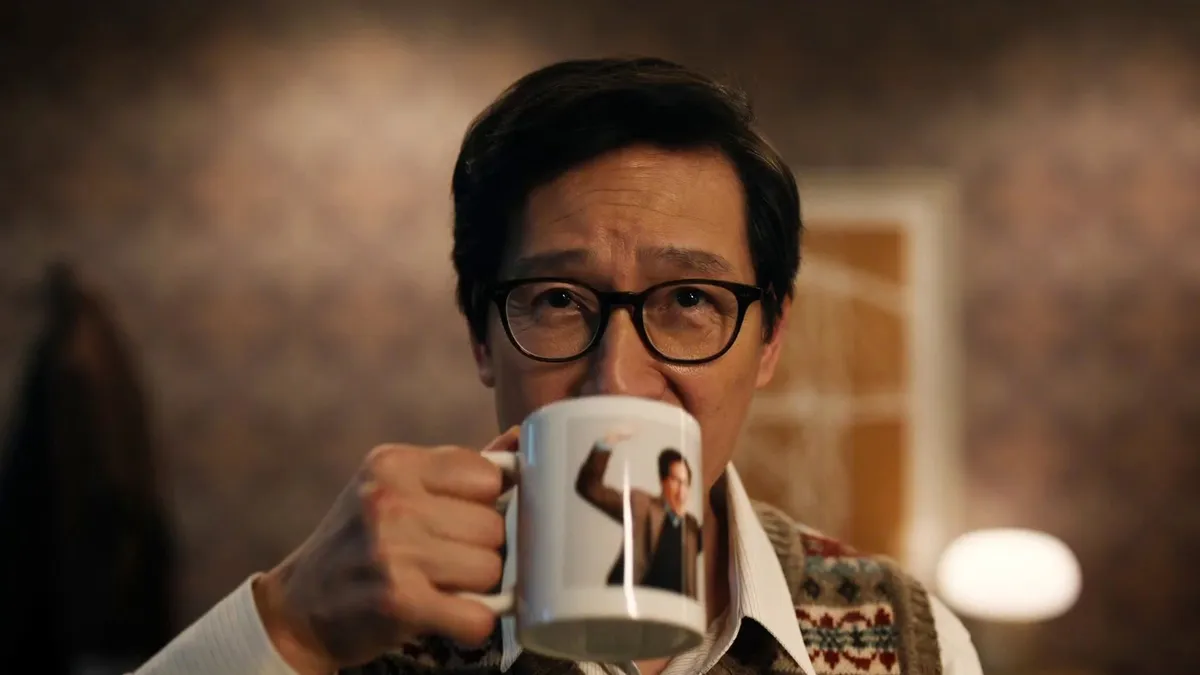
The “John Wick” influence doesn’t merely carry over into the film’s fight choreography—which, while more fluid in its martial arts influence, is quite tactile and complementary to Eusebio’s flexible camera—but also in the film’s interest in its own mythology. By the time Rose enters the picture and begins to lay out her relatively simple but haphazardly delivered motivations for wanting to return from the dead and pull Marvin away from his peaceful existence, one gets the sense that we’re entering Continental-levels of engorged background implications.
The heart (pun intended) of that issue stems from the fact that “Love Hurts,” with all of its involved characterization, subplots, and supporting shenanigans, is only 83 minutes in length. So, imagine a “John Wick: Chapter 5” in which Keanu’s globetrotting hijinks under the thumb of the High Table were condensed to the same runtime as your average Dardenne brothers film, and you’ll get an idea of how much Eusebio is struggling to pay the cheque before dessert even arrives. (Some early scenes especially appear to have been cut down abruptly, indicating a likely extended version left in the aether of the editing room floor.)
Major as this complaint is to the overall success of the film’s involved plotting, “Love Hurts” still gets enough mileage from Jonathan Eusebio’s slick set-pieces and the sincerity of his actors working past some of the performative cheese of the screenplay; in the realm of recent Oscar winners with a horrific post-win track record, DeBose provides Quan with stable company, squeezing as much chemistry (more adorable in its fizzled sexual charge than anything) from a series of lovelorn glances and “Goodfellas”-adjacent parallel voiceovers as the pair can muster. In its endless search for redemption in affairs of the heart, “Love Hurts” comes across like an earnest plea of devotion, more convinced of itself than convincing in its endurance—a flawed proclamation to be sure, but like any relationship, one that signals a promising start.



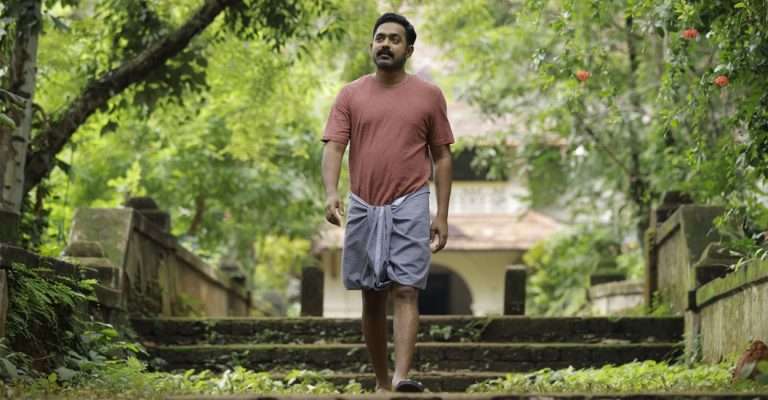
![Wrath Of Man [2021] Review : Guy Ritchie’s Stab At The Crime Epic](https://79468c92.delivery.rocketcdn.me/wp-content/uploads/2021/06/wrath-of-man-768x512.jpg)
